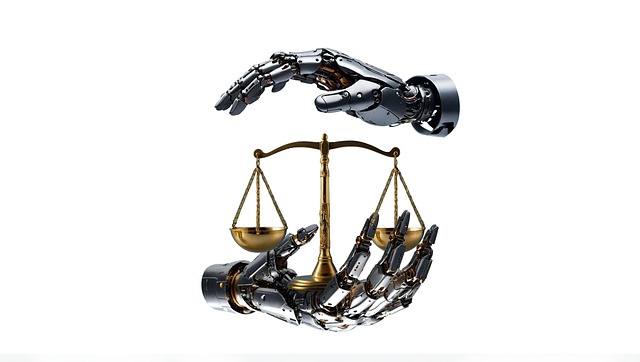In today's digital age, Criminal Defense Attorneys face new challenges navigating antitrust law in complex markets driven by evolving trends. They must adapt traditional principles to modern issues like digital transactions, algorithms, and data sharing. The goal is not just dismissal but safeguarding client rights amidst rapid changes. Staying informed about legal interpretations and strategic arguments is crucial for robust defenses in this dynamic domain, especially in intricate cases of antitrust enforcement in digital markets. Attorneys monitor these trends to protect their practices, anticipate challenges, and deliver successful outcomes for clients facing white-collar charges.
“In today’s digital era, the role of criminal defense attorneys is more crucial than ever. As antitrust enforcement trends in digital markets continue to evolve, understanding complex legal landscapes is paramount. This article explores key aspects, including the intricacies of antitrust law and its impact on businesses. We delve into the strategies employed by defense attorneys in navigating high-stakes cases, highlighting their essential role in protecting market participants’ rights. By examining current trends, we offer insights that can empower professionals to adapt and ensure robust legal representation.”
- Understanding Antitrust Law in Digital Era
- Role of Defense Attorneys in Complex Cases
- Navigating Legal Trends for Market Protection
- Strategies for Effective Criminal Defense Representation
Understanding Antitrust Law in Digital Era
In today’s digital era, understanding antitrust law has become increasingly vital for Criminal Defense Attorneys navigating complex legal landscapes. The antitrust enforcement trends in digital markets have significantly evolved, demanding a nuanced approach to general criminal defense strategies. As technology advances and businesses expand globally, traditional antitrust principles must adapt to new challenges posed by digital platforms and online interactions.
Attorneys representing clients facing charges related to digital transactions, algorithms, or data sharing agreements require a deep knowledge of these evolving laws. The goal is often not just a complete dismissal of all charges, but also ensuring that the rights of their clients are protected in this rapidly changing environment. By staying abreast of antitrust enforcement trends and leveraging strategic arguments based on current legal interpretations, attorneys can provide robust defenses for their clients operating in digital markets.
Role of Defense Attorneys in Complex Cases
In complex cases, particularly those involving intricate legal issues like antitrust enforcement trends in digital markets, the role of a criminal defense attorney becomes even more critical. These attorneys are adept at navigating through dense legal landscapes, ensuring that their clients’ rights and interests are protected throughout the process. They possess the expertise to scrutinize evidence, identify loopholes, and construct robust defenses tailored to the unique circumstances of each case.
By leveraging their deep understanding of both criminal law and the specific industry under scrutiny, defense attorneys can provide strategic guidance. They prepare detailed legal arguments, challenge the prosecution’s evidence during jury trials, and advocate for their clients’ innocence or reduced charges. Their goal is not merely to defend but also to achieve favorable outcomes, ensuring justice is served while safeguarding the rights of individuals faced with complex legal challenges.
Navigating Legal Trends for Market Protection
In today’s digital era, navigating legal trends is crucial for criminal defense attorneys to protect their market and offer winning challenging defense verdicts. Antitrust Enforcement Trends in Digital Markets, such as increased scrutiny on anti-competitive practices in technology sectors, present both challenges and opportunities. While these trends can make it harder for defendants to navigate complex white collar charges, they also provide a chance for astute attorneys to challenge unfair legal interpretations and secure favorable outcomes for their clients.
Attorneys who stay ahead of these developments, understanding the nuances of emerging legal landscapes, are better equipped to build robust defenses. This proactive approach not only helps in defending against current accusations but also prepares them to anticipate future challenges, ensuring they remain competitive and effective advocates for their clients.
Strategies for Effective Criminal Defense Representation
In the realm of criminal defense representation, a strategic approach is key to achieving just outcomes for clients. One effective strategy involves understanding and leveraging antitrust enforcement trends in digital markets. As technology evolves, so do legal landscapes, necessitating attorneys to stay abreast of regulatory changes impacting their cases. For instance, with the rise of online activities, antitrust laws have adapted to address new forms of market competition, providing insights that can strengthen defense arguments related to pricing, data sharing, and anti-competitive practices.
Moreover, successful criminal defense attorneys must adapt their strategies to cater to diverse client bases—from corporate and individual clients to philanthropic and political communities. This adaptability requires a nuanced understanding of different legal needs, as well as the ability to navigate complex cases with integrity and professionalism. Whether it’s negotiating plea deals or advocating for clients in high-profile jury trials, effective representation hinges on strategic planning that considers both unique client circumstances and broader legal trends.
Criminal defense attorneys play a pivotal role in navigating complex legal landscapes, especially with the evolving dynamics of antitrust enforcement trends in digital markets. By staying abreast of changes in regulations and adapting strategies, these professionals ensure effective representation for their clients. Understanding the intricate details of antitrust law is crucial to defending against charges and fostering market protection. This comprehensive approach not only safeguards individual rights but also contributes to a fair and vibrant digital economy.






